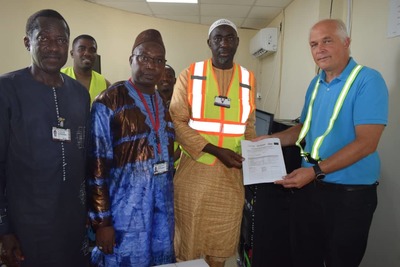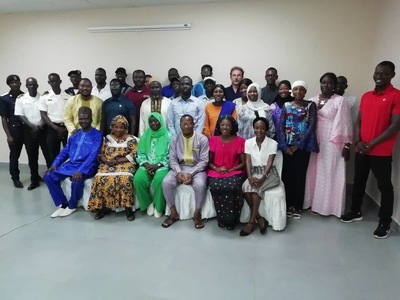Projects under Department of Water Resources
- Climate Change & Early Warning System II (CCEWS II):
The objective of the project is strengthen the climate monitoring capabilities, early warning systems and available information for responding to climate shocks and planning adaptation to climate change in The Gambia.
"Read More"
- Fouta Djallon Highlands Project :
The regional programme for the Integrated Development of the Fouta Djallon Highlands was initiated and implemented in 1981 by the organisation of the African Unity (OAU) and member states (The Gambia, Guinea, Guinea-Bissau, Mali, Mauritania, Niger Senegal, and Sierra Leone) with the support from the International Community within the framework of an Action Plan on the medium and long term to control desertification, drought and other natural calamities in Africa. This programme aims at assuring the preservation and development of natural resources of the environment with the view to contribute to the improvement of the living condition of people living in the highland.
"Read More"
- National Water Sector Reform Project:
Grant to finance the implementation of national water sector reforms. The project aims at supporting the introduction of a supportive legal and institutional environment for integrated water resources management (IWRM), developing IWRM strategies, and strengthening and improving data and information systems. This will also facilitate provision of water supply and sanitation at country level in order to achieve the MDGs as well as the African Water Vision.
- Climate Smart Rural Water & Sanitation Project:
The Gambia Climate Smart Rural WASH Development Project (CSRWASHDEP) includes delivery of better waste management services to improve environmental conditions and better protect national water resources in changing climatic conditions, particularly in riverine and coastal communities. The Project is designed to deliver the objectives through an Integrated Water Resources Management (IWRM) approach. The IWRM approach entails coordinated stakeholder interventions to improve the quality of economic and livelihood-driven interaction with nature’s water cycle (the Hydrological Cycle) in a manner that promotes safe, equitable and sustainable utilization of the water resources; the approach naturally embeds the need to improve sanitation, and to address the potential climate change impacts.
"Read More"


